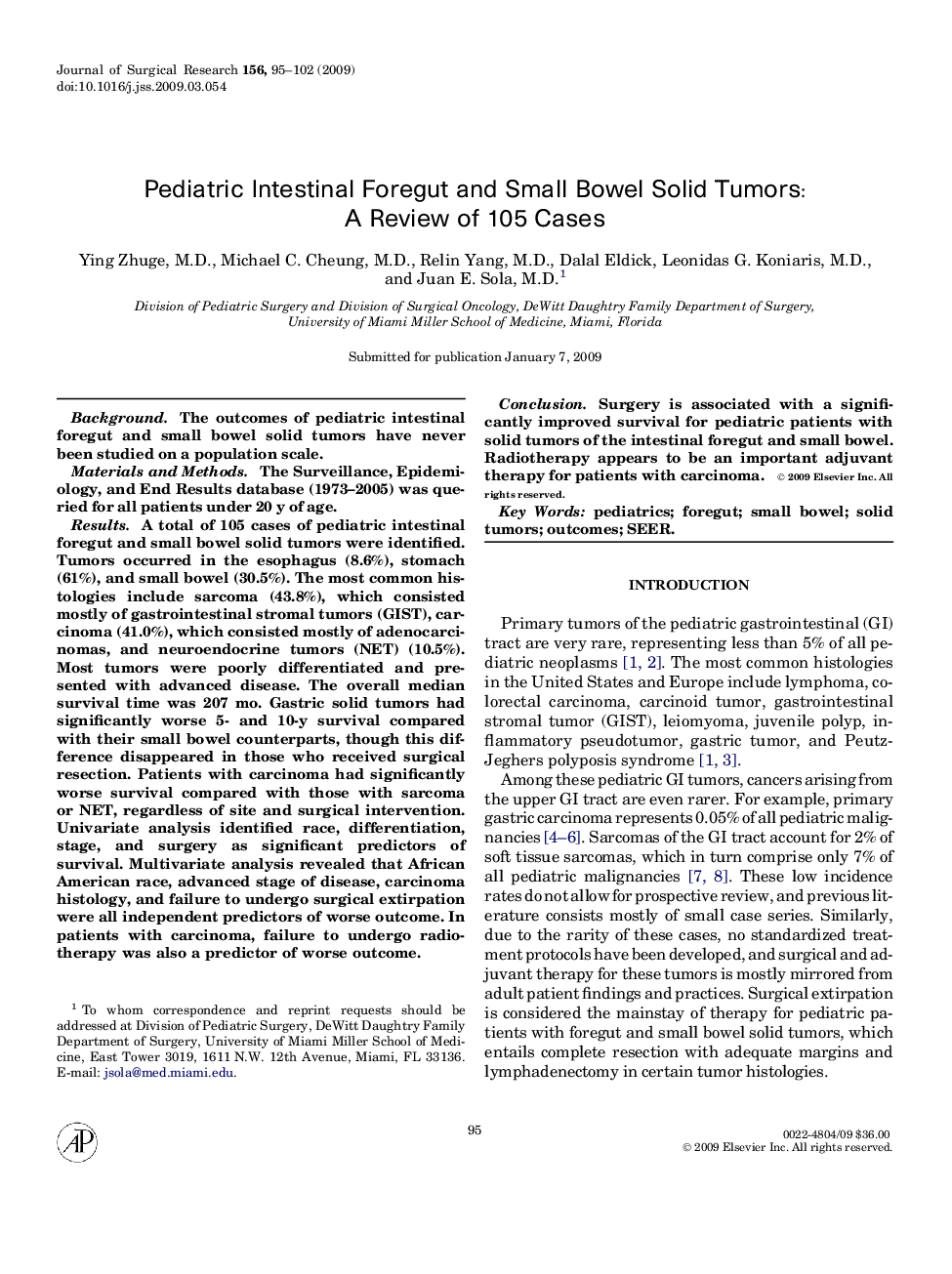| Article ID | Journal | Published Year | Pages | File Type |
|---|---|---|---|---|
| 4303537 | Journal of Surgical Research | 2009 | 8 Pages |
BackgroundThe outcomes of pediatric intestinal foregut and small bowel solid tumors have never been studied on a population scale.Materials and MethodsThe Surveillance, Epidemiology, and End Results database (1973–2005) was queried for all patients under 20 y of age.ResultsA total of 105 cases of pediatric intestinal foregut and small bowel solid tumors were identified. Tumors occurred in the esophagus (8.6%), stomach (61%), and small bowel (30.5%). The most common histologies include sarcoma (43.8%), which consisted mostly of gastrointestinal stromal tumors (GIST), carcinoma (41.0%), which consisted mostly of adenocarcinomas, and neuroendocrine tumors (NET) (10.5%). Most tumors were poorly differentiated and presented with advanced disease. The overall median survival time was 207 mo. Gastric solid tumors had significantly worse 5- and 10-y survival compared with their small bowel counterparts, though this difference disappeared in those who received surgical resection. Patients with carcinoma had significantly worse survival compared with those with sarcoma or NET, regardless of site and surgical intervention. Univariate analysis identified race, differentiation, stage, and surgery as significant predictors of survival. Multivariate analysis revealed that African American race, advanced stage of disease, carcinoma histology, and failure to undergo surgical extirpation were all independent predictors of worse outcome. In patients with carcinoma, failure to undergo radiotherapy was also a predictor of worse outcome.ConclusionSurgery is associated with a significantly improved survival for pediatric patients with solid tumors of the intestinal foregut and small bowel. Radiotherapy appears to be an important adjuvant therapy for patients with carcinoma.
